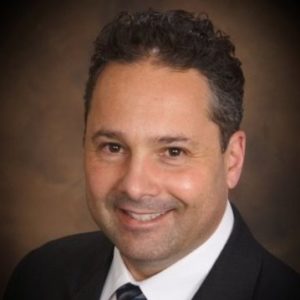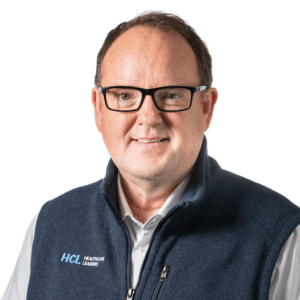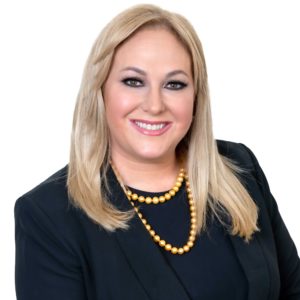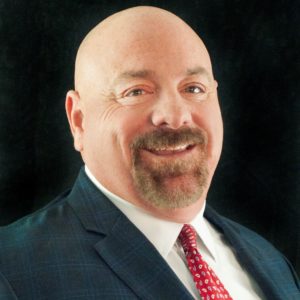The Changing Demands of the Gen Z Workforce
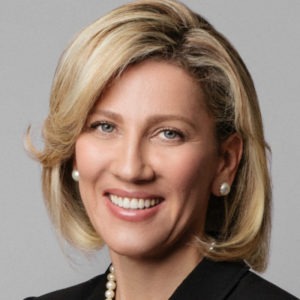
Marina Aslanyan, CEO, SmartLinx
The current healthcare staffing crisis means that senior care organizations need to be resourceful in how they attract, retain, and schedule staff. The Generation Z workforce provides one potential solution to help ensure these organizations are able to attract the candidates they need. With many Gen Z workers graduating from nursing school, senior care organizations might want to focus on attracting candidates from this generation.
Marina Aslanyan, CEO of SmartLinx, shared valuable insights about the Gen Z population, what they’re looking for in a career and a workplace, and how senior care organizations can better attract and retain members of the Gen Z workforce.
PC: What are some of the qualities that Gen Z workers are looking for in their careers?
MA: As the pandemic slowly shifts into an endemic, workplaces are expected to remain flexible. This capability for workplaces to cater to individual lifestyles was well received by Gen Z and they will not settle for rigid workplaces as they begin their job hunt.
Cultivating a hybrid workplace environment that attracts full-time staff, traveling nurses, and agency staff is important to the hiring process for all generations. It’s up to technology providers to come together to create a tight knit ecosystem to make this a reality, and it’s up to the healthcare industry to embrace this new way of work. One where medical professionals have a flexible work schedule, fair pay, and can easily complete licensing requirements during paid time are all attractive options that may help healthcare organizations reduce turnover and increase employee satisfaction.
Gen Z has grown up in tandem with social media creating a desire to be connected at all times. This desire is pushing companies to create a workplace culture that not only invites team members to connect on the job, but off the clock as well.
However, time away from work is important to Gen Z as they manage social lives and self-care, such as their mental health. Additional technology can give young nurses autonomy over their work/life balance by offering them capabilities such as managing their schedule on-the-go, accessing earned wages early, and managing communication and notifications with supervisors.
PC: Are certain benefits more valuable to Gen Z than others?
MA: The ‘future of work’ is here and now. For years, younger workers have requested more flexible work arrangements but organizations across many sectors didn’t consider these appeals to be practical or actionable. Since the pandemic, employers in nearly every sector of the economy adapted to remote and hybrid work arrangements, but healthcare has been slow to evolve.
People want to spend more time with family and friends, have flexible schedules, and prioritize mental health & wellbeing. One way to implement strategies that allow Gen Z to free up time to act on their values is adding cutting-edge technology into the workplace; allowing employees to access their schedules anywhere they go, and move shifts as needed.
According to a survey by Dell Technologies, about 79% of Gen Z surveyed said they wanted to work with cutting-edge tech, with almost all (91%) saying that the accessibility to tech would be a factor in choosing between employers. Making the workplace easier allows employees to feel less stressed on their personal time.
In addition to a flexible work schedule, Gen Z is setting their sights on unique benefit offerings that cultivate not only their professional lives, but also their personal. Financial planning or coaching, tuition reimbursement, mentorship programs and any additional benefits that show their employer cares about them as a person, not just as an employee, are what attract this young generation.
Gen Z watched their parents struggle and even get laid off during the Great Recession. This experience has led to financial planning as one of the most important benefits for this generation. Job security in addition to financial planning will ensure this generation stays with your facility for the long haul.
The same is true of providing people with adequate paid time off. If an employee doesn’t have to worry about their employment status if they need to take a day or more off when they are sick, they are more likely to stay at a job. These benefits provide crucial support to the heroes of the pandemic, assuring them their needs are met as they continue to care for others. After three years of canceled plans, lost connections and time stuck at home Gen Z is looking to break out of the confines of COVID-era restrictions.
PTO is laced in every conversation related to talent acquisition, and the healthcare industry is no different. It may seem counterintuitive to offer more time off as facilities are looking to fill open shifts, but offering the ability to travel and de-stress is crucial to attract a generation that lost out on opportunities usually given to those in college (spring break, road trips, vacations). Supplying adequate time off ensures young nurses can build a healthy foundation for their work/life balance and mental health.
Offering employees incentives can make the workplace more attractive and make them feel valued as team members. The good news is not all benefits have to be elaborate. For facilities just beginning their foray into extended benefits, an option is to provide food or meals to employees. For example, your facility can stock the break room or nurse’s station with snacks or provide meals to people on the job. One study found that offering employees prepaid groceries to take home makes the team feel cared for even off the clock.
In addition to nutrition while working, this provides a place for nurses to connect with their peers and increase overall morale, and in turn, employee retention. All of the mentioned benefits provide support and offer value to Gen Z as they begin their professional careers.
PC: What are some of the benefits a senior care organization could see when focusing on recruiting Gen Z workforce members for their staff?
MA: A recent report by Statista indicates that Gen Z makes up 24% of the current workforce, and that number will increase rapidly as older generations who struggled with burnout over the last few years leave the workforce. When considering those numbers, it’s hard to disregard the impact of Gen Z on all sectors, especially healthcare. Employers need to take notice of the unique skill sets and desires of the growing Gen Z workforce to stay on top of the shifting workforce dynamic.
To keep up with the shifting tide of generational workers, senior care facilities should begin to recruit Gen Z right out of college to begin training them on senior care specific practices. These graduates spent years learning the basics and are still malleable to learning the ropes of the long-term care industry. Taking advantage of this while seasoned nursing professionals are still available will increase a smooth transition between generations of nurses.
In addition to the influx of Gen Z and training opportunities, the generation as a whole has been through the toughest years nursing has seen in recent times. Gen Z was going through clinicals and residencies during the peak of COVID and have the upper hand at crisis management, it is all they have known in their professional career. Add in their adaptability and technology prowess, and the benefits of recruiting Gen Z at this current time is unprecedented.
PC: If a senior care organization wanted to recruit Gen Z workers specifically, how would you recommend they approach the process?
MA: Meet them where they are. College job fairs and online social platforms create a personable approach to talent recruitment. Many students attend on campus job fairs as their first foray into their career search due to its proximity to campus, and knowing the jobs are indeed lucrative since online job sites are filled with vague job descriptions and unfamiliar company names. Utilizing this approach and staffing your booth with a current employee gives an opportunity for young nurses to learn from seasoned professionals and get validation to the quality of working at your facility. To recruit nursing students from the campus also assures your facility is one of the first job opportunities received and considered, while also streamlining the hiring process by vetting applicants before they move through the interview process.
Social platform talent acquisition is another way for employers to interact with students or graduates in an organic and familiar way. One way to connect is through advertisements or shared posts that attract young nurses. To maximize this approach your facility should list benefits close to the beginning of the text, or in a way that assures the candidate has retained your offer. In addition to advertisements, due to the social nature of this generation, joining nursing groups, on apps such as Facebook, TikTok or communities on Instagram, will engage conversations surrounding job positions. Offering mentorship through comments in these groups gives credibility to the notion that your facility wants to foster growth and value the opinions or stressors facing the generation.
Like other areas of the workforce, hiring has become a technology-based task rather than a paperwork juggle. Many companies are switching to methods that make hiring easy for both the applicant and HR teams. A graduate can walk down the street and find QR codes or numbers to text their resume for consideration. Offering these tech enabled job opportunities allows the applicant to apply without unnecessary steps that would discourage them otherwise. Providing an easy approach to the application process ensures the candidate will continue their candidacy at your facility rather than others that require more steps and paperwork.
PC: Is there anything else you would like to add?
MA: Gen Z is a technology native generation that likes things to be easy, accessible, and enables their lives to be easier. Utilizing tech platforms to show you know how to meet their need for a positive worklife is important as the industry attempts to recover from the staffing shortage brought on by the pandemic. Graduating nurses are going to choose the facility that streamlines tasks through effective means, such as tech, instead of wasting time utilizing outdated methods.
Owners and operators of senior care facilities have been slow to embrace technology. The reality is, in many cases, they simply haven’t had to, for a variety of reasons. It can be daunting to adopt new technologies after going through various precautions and changes over the last few years. However, by investing time and resources now, you can effectively alleviate stressors from your staff and HR team in small ways that make a big impact, like reducing burnout.
Senior care operators will need to leverage technology to manage staff and compete for talent by providing workers with the ability to manage their work schedules, eliminate laborious manual processes and lean on digitization in their day-to-day jobs. Technology can play a critical role in helping senior care owners keep existing employees happy, reduce defections, attract new workers in a hotly competitive environment, and preserve – or greatly improve – precious patient care ratings.
It would be hard to argue against these reasons for eschewing technology, as they all seem legitimate and plausible given the historical nature of the senior care industry. But a range of recently emerging external forces, brought about in large part by the pandemic, has the potential to change the calculus to the point where technology is no longer just a nice thing to have.

Paige Cerulli is a contributing writer to i Advance Senior Care.
Related Articles
Topics: Administration , Featured Articles , General Technology , Information Technology , Staffing , Technology & IT


